- Home
- How the Tes English Team of the Year brings books to life
How the Tes English Team of the Year brings books to life
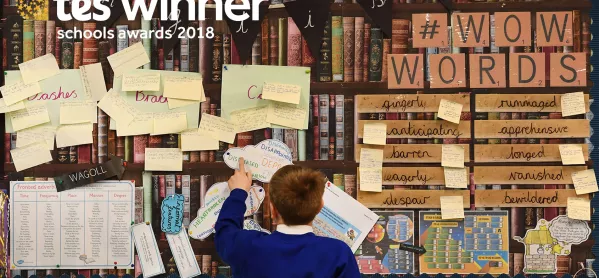
When pupils at Wyndham Primary Academy turned up for school one morning, they found a crime scene with tape all over the front doors.
A break-in? A burglary? Vandalism? Or something more sinister perhaps?
The giveaway was the pupils’ excitement and the fact that someone had written in paint across the front windows: “Who has the stone?”
Watch: Highlights of the 2018 awards ceremony
Enter: 2019 awards are still open for nominations until 10 March
Read: Testimonials from Tes award winners
It was the English department’s unique way of promoting the latest book that pupils were about to start reading.
And it’s usually a big event when pupils start a new book at Wyndham.
Not only is each child given their own copy to keep and take home, but the story is used as a hook for all other lessons across the curriculum, whether in science, maths or history.
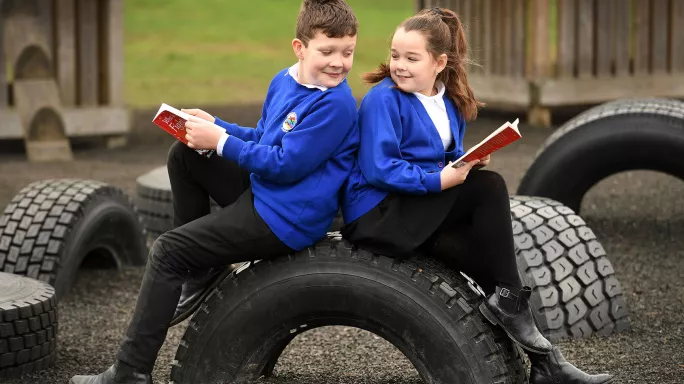
Heart of the matter
For example, when reading Pig Heart Boy by Malorie Blackman - about a boy who needs a heart transplant and is given a pig’s heart - science lessons took on an interesting twist: pupils actually dissected a sheep heart (on a visit to a nearby secondary school in the Trust). Pupils also recorded radio adverts urging people to become organ donors, and managed to raise money for the heart unit at the local hospital as well! (Read the team’s top tips here.)
“Sometimes pupils think if it’s in a book it’s not real, but this is about bringing stories to life,” says English teacher and assistant principal Michelle Garton.
“We want the children to have a purpose for learning because sometimes they’re presented with things and aren’t really sure why they’re doing them - like, ‘Why am I making this or trying to do this experiment in science?’ But this way, we can give it a context and make it actually mean something.”
When Year 5 were reading Berlie Doherty’s Children of Winter, about the Great Plague, staff dressed up teacher Mr Jones as a plague victim and used theatrical make-up to create some painful sores on his body.
“It was brilliant, because they all bought into the fact that they wanted to ask Mr Jones more questions and discuss things with him,” says English teacher Paul Lowther, who took over as principal last year.
“Whenever we review our planning, we’re thinking, ‘What are the next hooks?’ We’re always having conversations about what we need to do next, and we’re not frightened to challenge each other and to try things out.”
Deprivation no barrier - when you have books
Children of Winter also ties in with local history as it’s set in Eyam, around 30 miles away in rural Derbyshire.
Wyndham, of course, is a world away in inner-city Derby, where there are higher than average levels of deprivation, crime and drug and alcohol abuse.
Around half of pupils are eligible for free school meals (compared to the national average of around 14 per cent) and many are not exposed to the same levels of vocabulary in the home as pupils in more affluent areas. (A Year 6 boy didn’t know what a cliff was, for example.)
In 2011, Wyndham was judged to be in the bottom 200 schools in the country and “had a lot of blue on the data sheets”.
It was placed in special measures and forced to academise when former head Angela O’Brien took over and “turned things around”.
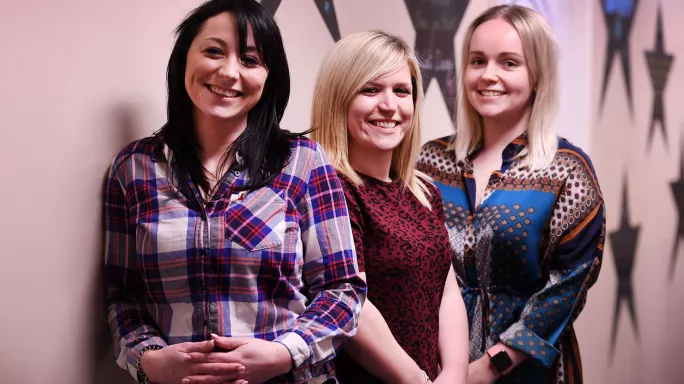
Today, as a result of the whole-school approach through the English mastery curriculum, Wyndham’s attainment in reading and writing at the end of Year 6 is well above the national average.
And there’s the small matter of the English department scooping the Tes English Team of the Year Award.
“It’s really a whole-school award because we all teach input on English,” says Garton, who has been at the school since she was an NQT and has witnessed the school’s turnaround.
“We’re incredibly proud of our progress. We have worked really hard. It’s the joint effort of everybody pulling together.
“We have always got the children at the forefront of everything we do. But I think it’s because we’ve got that engaging curriculum, that actually we enjoy it as well, so it’s not that we’re just coming in to teach kids - we’re actually coming in to enjoy what we do, and I think all our staff would say that.”
English engineers
But it’s not just the teachers who teach - because the pupils teach each other.
The English engineers (and maths mechanics) are a group of Year 5 and 6 pupils who go around the school helping pupils with reading and spelling. And they even get some training and have to submit a job application before they get the post.
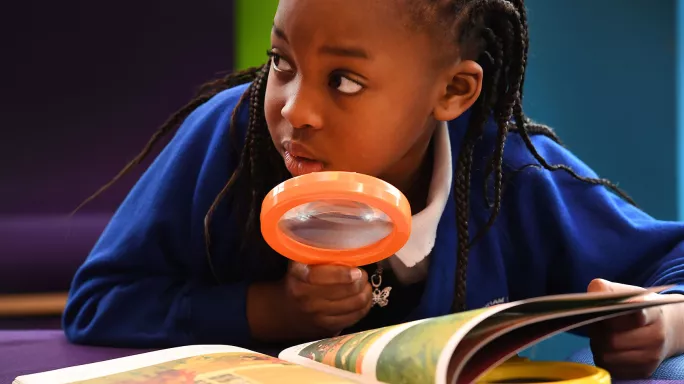
They also publish a fortnightly newspaper on the school’s website which runs interviews, school news and content chosen by the children themselves.
“We managed to take them to the Burton Mail so they actually got see what it’s like in a newsroom if they want to pursue a career as a journalist, and the boys were really inspired by the sports journalism,” says Lowther.
He adds: “We have lots more things on the horizon. One of the other big successes is that we’re now getting the parents in and breaking down the cycles of ‘them’ and ‘us’.”
Events for parents include spelling workshops in which they can learn how to help their children improve spelling. There are tea-and-cake sessions too (because “cake always gets ‘em in”) and sessions for parents on improving mental health and wellbeing are also in pipeline.
“We get them to write down their thoughts about what they think about the school, what they would you like to see happen next and what they don’t know about the school,” says Lowther.
The world’s a stage
But perhaps nothing gets parents into school more than the annual Year 6 summer production when the “hall is packed out every single night”.
And this is another way, of course, in which books are brought to life.
The success of the productions is partly down to two “really talented TAs”: one of them a specialist dance teacher and the other who plays the piano and sings.
“It’s awesome. They live local. It’s just something the kids love and the parents [do] too,” says Garton.
Productions have included The Lion King, Harry Potter and Alice in Wonderland, for which all the costumes were made specially.
Two years ago, ahead of the production of Aladdin, the pupils went on a school trip to London to see it on the West End stage.
“It was one of the best trips we’ve ever done in terms of life experience,” says Garton.
“Just to put it in context, one boy said he couldn’t wait to see the Eiffel Tower!
“We were early so the bus driver gave us a little tour around London but some of the roads were closed and so we were late getting back. The show started at 2.30pm and it got to 10 past and then to quarter past - we were like, ‘This is a little bit too close for comfort now!’
“And when we got there, all the ushers and stewards were waiting outside for us, and seeing the children’s faces when we went in was unbelievable. It was like nothing they’d ever seen before. And then they went and did Aladdin as their end-of-year production.”
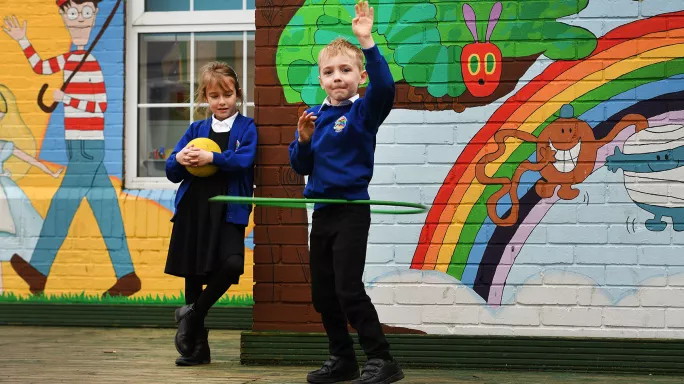
So who did steal the stone?
It was Voldemort, of course, and the crime scene was a hook was to introduce pupils to Harry Potter and the Philosopher’s Stone.
Incidentally, the book also links to the PE curriculum, as plans are afoot to start a quidditch after-school club.
“I’ve found from a bit of research that universities play it, and they have quite a high standard,” says Lowther.
“It’s about experience again. I want to give children a chance here of doing something that is a bit different, that doesn’t just define the fact that we’re in Alvaston. So why not have a go at quidditch?”
Presumably that’s without flying. But these pupils already are.
Keep reading for just £1 per month
You've reached your limit of free articles this month. Subscribe for £1 per month for three months and get:
- Unlimited access to all Tes magazine content
- Exclusive subscriber-only stories
- Award-winning email newsletters



